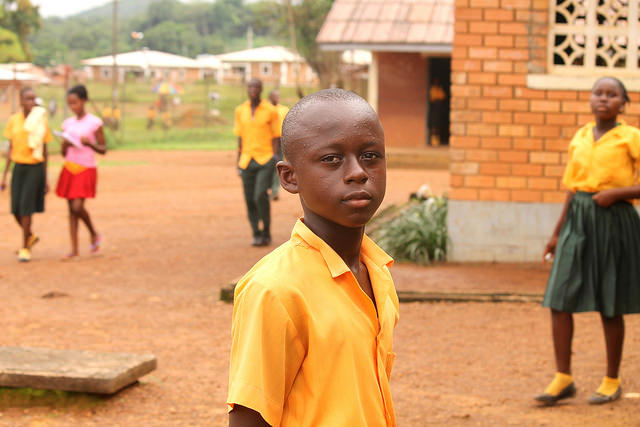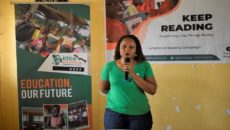MONROVIA, Montserrado – Last Wednesday, the acting minister of education, Latim Dathong, announced that the Partnership Schools for Liberia program has been renamed and restructured into the Liberia Educational Advancement Program to increase collaboration and accountability.
According to the ministry, LEAP would come into full swing this September with all seven original PSL providers renewing their contracts for the new school year (the eighth original provider, Stella Maris, was dropped from the program due to lack of performance).
PSL was first introduced in 2016 when George K. Werner became minister of education. The former President Ellen Johnson Sirleaf had then described the country’s education system as “a mess†after more than 25,000 candidates failed to pass the University of Liberia’s entrance exam. Upon taking office in 2015, Werner vowed to embark on a reform of the education system, changing it from “mess to best.†PSL was one of the reforms he implemented.
However, the policy came under intense criticism from the National Teachers Association of Liberia and some civil society organizations. The critics claimed that the initiative poured a lot of resources into a few schools and allowed private institutions to profit when those resources should be spread across the sector.
A baseline report demonstrated that the program was making a positive impact on teachers, work behavior, and enrollment. Another report released by the Center for Global Development revealed that while PSL was costly to run, it raised student learning by 60 percent.
Following the coming of President George Weah’s government, the new education minister, Ansu Sonii, promised to introduce a new reform in the system, which began by a general assessment and a national education conference.
The restructuring of the PSL program, according to Sonii, followed productive discussions with a range of stakeholders in the sector.
“We look forward to working with providers and stakeholders across the education system with the aim of building on the positive learning outcomes evidenced thus far,†he said.
Accord to the ministry’s press release, Dathong considered the restructuring necessary to cater for every aspect of engagement that was missing from the beginning. He said many stakeholders had felt left out of the initial process, including the teachers association, therefore, the current administration sees the need to ensure that all Liberians are fully engaged.
According to the ministry, Mary Mulbah, president of the teachers association, has also expressed support for LEAP. It says several district and county educational officers present at the signing ceremony also made commitments to collaborate with providers, teachers, and school administrators to ensure continuous improvement in the quality of education across the country.
The ministry has promised to strengthen its monitoring and evaluation and to ensure consistent standards across the seven providers participating in the program. It says the plan would also include a robust performance framework, which focuses on the core standards of teacher professional development, school leadership training and enhancement, and school monitoring including classroom observation.
During the new school year, providers would be required to meet a set of Minimum Quality Standards across a range of areas including pre-service training, ongoing professional development, student health, and cost per student.
“If providers are found not to meet these standards, they will be notified by the ministry and given 60 days to either appeal the finding with evidence or address the issue and provide proof of improvement,†the ministry disclosed.
“Providers will also be assessed based on a set of Key Performance Indicators or KPIs. To ensure that providers are meeting the objective of improving learning outcomes, the core KPI for the program will be literacy and numeracy assessments.â€
It would also be incumbent on providers to consider student and teacher attendance as additional KPIs upon which they will be measured. It says they are also required to report on a set of Key Descriptive Indicators data on teacher and student retention, student-teacher ratios, and enrolment and progression by age, grade, and gender to enhance transparency and oversight.
The ministry has not yet released copies of the new contracts signed by the providers, as it did with previous contracts, and it is unclear whether this is simply a rebranding effort by a new administration.
Featured photo by Solidarity Center/Bill E. Diggs



